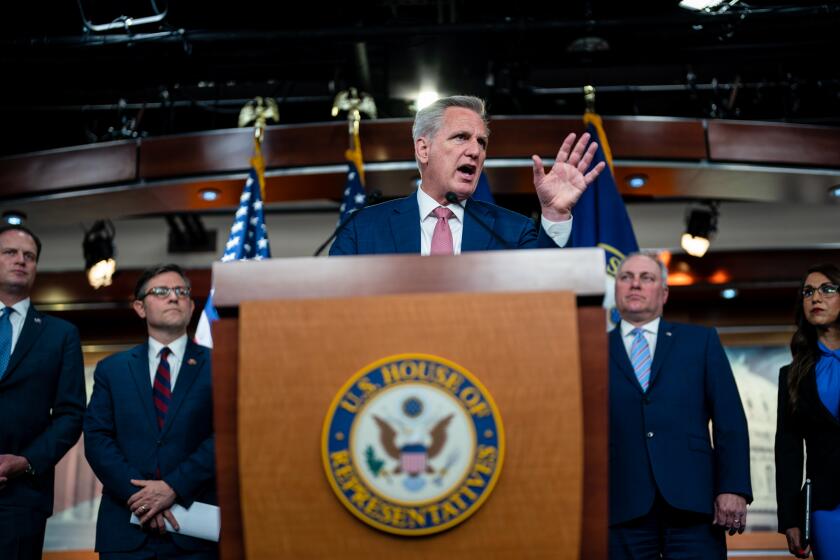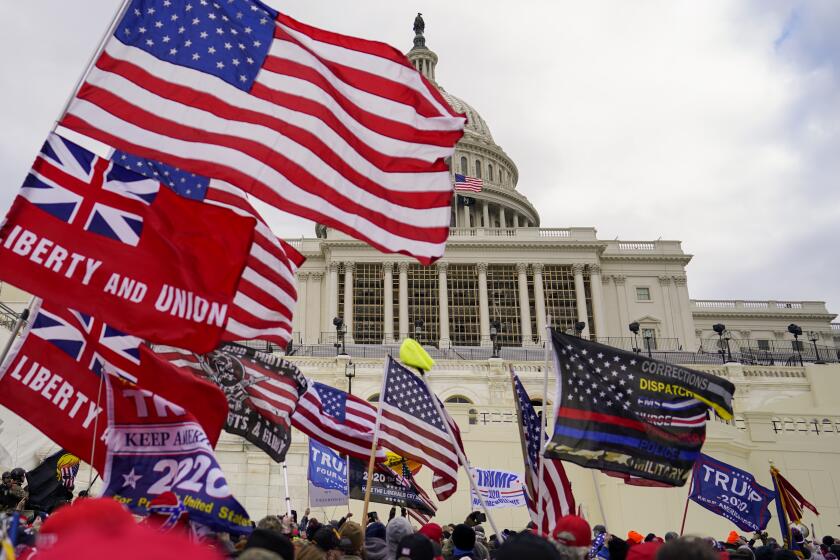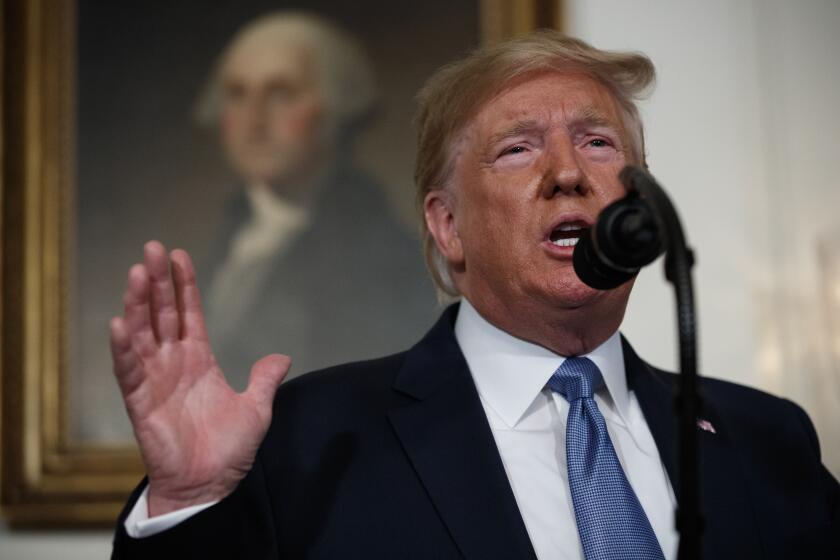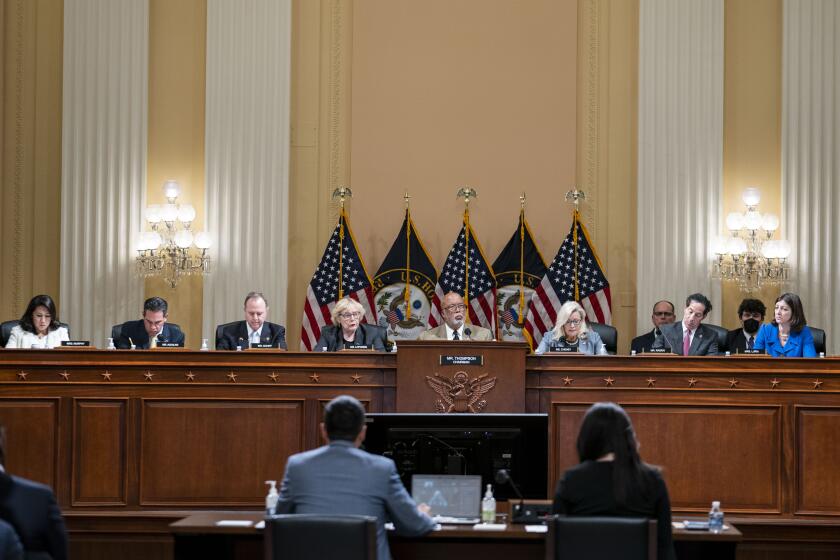Column: The original sin that plagues Congress’ Jan. 6 committee
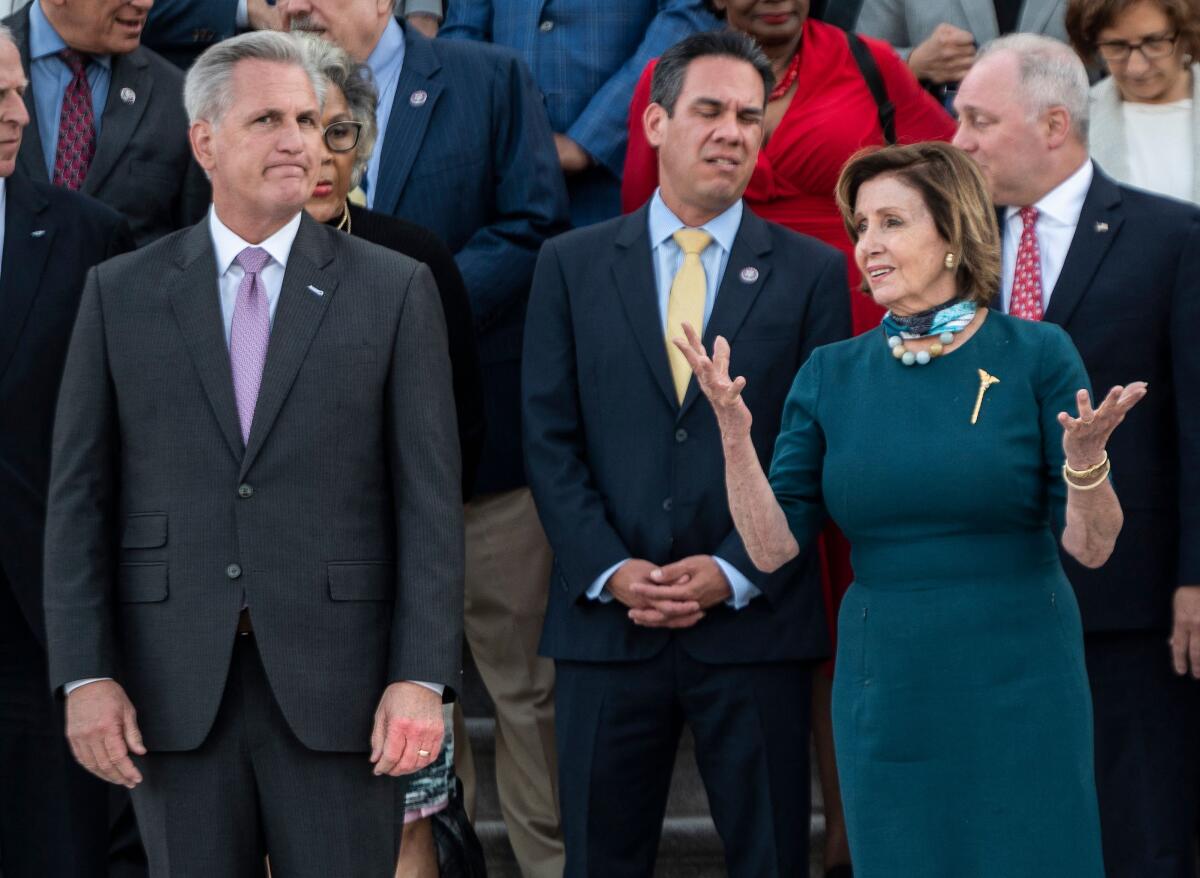
)
- Share via
It’s easy to understand why so many Republicans don’t believe the House committee investigating the Jan. 6 attack on the U.S. Capitol is legitimate. In their view, it was born in original sin: Its membership was unfairly stacked at the outset and its proceedings, therefore, can be dismissed as biased.
The committee has now been in existence for most of a year, hearing testimony, gathering documents, issuing subpoenas, searching for facts.
But even as it prepares for a dramatic series of public hearings beginning June 9, it continues to bear the stigma of its controversial founding.
If you’re a Democrat, you may have put that episode out of your head. But Republicans certainly haven’t.
Opinion Columnist
Nicholas Goldberg
Nicholas Goldberg served 11 years as editor of the editorial page and is a former editor of the Op-Ed page and Sunday Opinion section.
They remember clearly and bitterly how in July 2021 House Speaker Nancy Pelosi (D-San Francisco) established the committee — and then promptly blackballed two of the committee members proposed by the GOP leadership, Reps. Jim Jordan (R-Ohio) and Jim Banks (R-Ind.). In doing so, Pelosi cited their hostility to the very investigation the committee was expected to carry out.
Republicans were outraged. House Republican leader Kevin McCarthy of Bakersfield decried what he called “an egregious abuse of power.”
“This panel has lost all legitimacy and credibility,” McCarthy said.
Both sides agreed Pelosi’s move was “unprecedented.” Committee members were supposed to be chosen “in consultation” with McCarthy, but instead, Pelosi selected her own Republicans for the panel — anti-Trump Reps. Liz Cheney (R-Wyo.) and Adam Kinzinger (R-Ill.). The Republican leadership announced it would boycott the committee.
The House Committee on Thursday subpoenaed five representatives who refused to voluntarily testify before Congress.
The committee now is made up of seven Democrats and the two Republican rebels.
Predictably, GOP voters have responded with deep skepticism. A Pew Research Center poll in January showed that nearly 8 in 10 Republicans have little or no confidence in the fairness of the committee’s investigation.
So the question remains: Was Pelosi right or wrong to blackball McCarthy’s picks?
The Republican argument is clear: The committee members are biased and its conclusions can’t be trusted.
But the counter-argument from Democrats is pretty compelling as well: Banks and Jordan were obstructionists and would have undermined an honest investigation. As cronies of the mendacious former President Trump, they would have voted no whenever the opportunity arose, and would have worked from the inside to portray the investigation as a witch hunt.
The decision is a win for the committee, which is fighting other attempts to keep it from accessing documents and phone records for its investigation.
“If you’re Pelosi, you know you’d be putting two people on the committee who have no interest in pursuing the truth or finding evidence, but are there to distract, disrupt and obstruct,” says Norman Ornstein, an emeritus scholar at the American Enterprise Institute in Washington.
He’s right, no doubt. What’s more, Jordan has now been subpoenaed to testify before the committee about his communications with Trump on and around Jan. 6. He was a participant in the very events under investigation, for goodness’ sake.
But I still think Pelosi made the wrong decision.
Sure, the events of Jan. 6 were an outright assault on democracy, a violent attempt to subvert a legitimate election. People lost their lives. Americans deserve a tough, comprehensive inquiry to ascertain to what degree the attacks were planned and coordinated, and by whom.
Furthermore, many Republicans behaved with enormous cowardice and craven hypocrisy both in their response to the attacks and in their embrace of Trump’s false election narrative. Jordan and Banks, for instance, fought the whole idea of an investigation at every stage, and helped disseminate the falsehoods that have led two-thirds of Republicans to say they believe Trump won the 2020 election.
But blackballing them didn’t solve anything.
Like many people, I’m torn about how to respond to irresponsible Republican behavior. But in the end, I believe in playing by certain established rules of the game, because democracy cannot function if opponents can’t cooperate. Republicans and Democrats don’t need to be best friends or backslapping buddies, but they need a mutually accepted modus vivendi.
In a federal court filing, the committee suggested the emails it is trying to obtain will show Trump himself violated multiple laws.
This is not the same as surrendering or turning the other cheek. Democrats shouldn’t be pushovers or suckers. But wherever possible, they need to defend the rules and institutions that allow government to function, not toss them aside in a “they go low, we go low” race to the bottom. Even if that means working with McCarthy and his ilk.
And let’s be honest: This committee has little power at the end of the day except the power of persuasion, so its credibility is especially essential. Alienating 8 out of 10 Republicans before the investigation even began was just counterproductive.
What’s more, Pelosi’s high-handed move didn’t alienate only hard-core Trumpist “stop-the-stealers.” Surely it also raised questions among moderate Republicans, anti-Trump conservatives and independents — precisely the communities whose support the committee could conceivably have won.
This was a self-inflicted wound.
If Trump isn’t referred to the Justice Department for prosecution, we risk another Mueller report fiasco.
I don’t like Jordan or Banks. If appointed, they’d have been nothing but trouble.
But so what? Let them rant and rave. They wouldn’t have been able to outvote the majority. And Republicans wouldn’t now be able to say they’d been silenced.
Having Cheney and Kinzinger on the panel may allow it to issue a unanimous, nominally bipartisan final report at the end of its work. But no one will be fooled into thinking it’s truly bipartisan.
I still believe in the committee. Its work creating a coherent narrative out of a complex set of facts will lead us to a better understanding of the plans and machinations that drove both the Jan. 6 melee and the fraudulent “stop-the-steal” movement.
Along the way it could result in additional criminal referrals to the Justice Department for those officials (conceivably including Trump) who stonewalled the committee or who are deemed to have broken the law as they sought to overturn the election.
The committee must not be deterred, subverted or ignored. Americans need to wrestle seriously with the evidence it gathers.
That’s why it’s a shame that so much of the panel’s credibility was frittered away on opening day by Pelosi’s decision.
More to Read
A cure for the common opinion
Get thought-provoking perspectives with our weekly newsletter.
You may occasionally receive promotional content from the Los Angeles Times.

